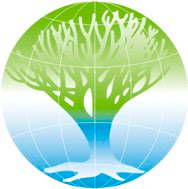On September 8, 2009, Dr. Abdel Aziz Hegazi explicitly attacked human rights organisations during a speech given at the American University of Cairo. Mr. Hegazi declared that he did not trust civil society’s activities in the field of human rights, and that human rights organisations and foreign funding in particular were harmful to Egypt's national security. He also affirmed that state security bodies should play a hand in NGO activities. An aggravating factor is that these statements were made as Parliament discusses amendments to the law regulating NGOs. The new draft bill on counter terrorism is also expected to be made public soon. Human rights organization fear the bill will include many of the repressive provisions existing in the current Emergency Law, which permits arbitrary administrative decisions such as closing down NGOs, and other violations of freedom of expression, association and assembly. It also includes a list of "prohibited" activities, which has been criticised for being too vague.
Indeed, in the next parliamentary session in October, the Government will reportedly submit substantive amendments to the law regulating NGOs. According to information received by the Observatory, the Egyptian Government plans to increase the powers granted to the General Federation of Civil Associations – the chairperson of which is appointed by the Government. The agency will be given the authority to decide on key issues in the internal life of an NGO such as the establishment and registration of NGOs, as well as on the allocation of funds and permission to conduct specific activities at its own discretion. Rather than creating a more favourable environment through amending the law, the General Federation of Civil Associations will duplicate some of the current responsibilities of the Ministry of Social Solidarity and take repression a step further by providing the latter with an exclusive list of organisations for whom "it is acceptable to receive funding from abroad". The Ministry of Social Solidarity currently has the authority to close down NGOs at will, while taking only the "opinion" of the General Federation of Civil Associations. To date, the role of the General Federation of Civil Associations is currently limited to "enhancing the contribution of civil society association in developing society" and its activities include administering studies and training courses, and placing a general vision for the role of NGOs in society.
According to Egyptian human rights NGOs, these amendments are contrary to freedom of association and will reassert the hegemony of the Executive over NGOs. The General Federation of Civil Associations will effectively force civil society organisations to process all crucial decision through an additional regulative agency that is totally controlled by the Executive, in addition to the Ministry of Solidarity and the National Security services within the Ministry of the Interior.
The Observatory condemns the persistent interference by the Egyptian Executive in the legitimate activities of civil society organisations in the country, and fears its increase, should such oppressive amendments be passed. The Observatory considers that the adoption of these amendments would blatantly violate regional and international human rights instruments that guarantee freedom of association, in particular the International Covenant on Political and Civil Rights, the African Charter on Human and People’s Rights and the provisions of the Declaration on Human Rights Defenders, adopted by the United Nations General Assembly on December 9, 1998. The Observatory requests Egyptian authorities to bring the amendments strictly into line with Egypt's legal commitments in terms of human rights protection and promotion.



No comments:
Post a Comment